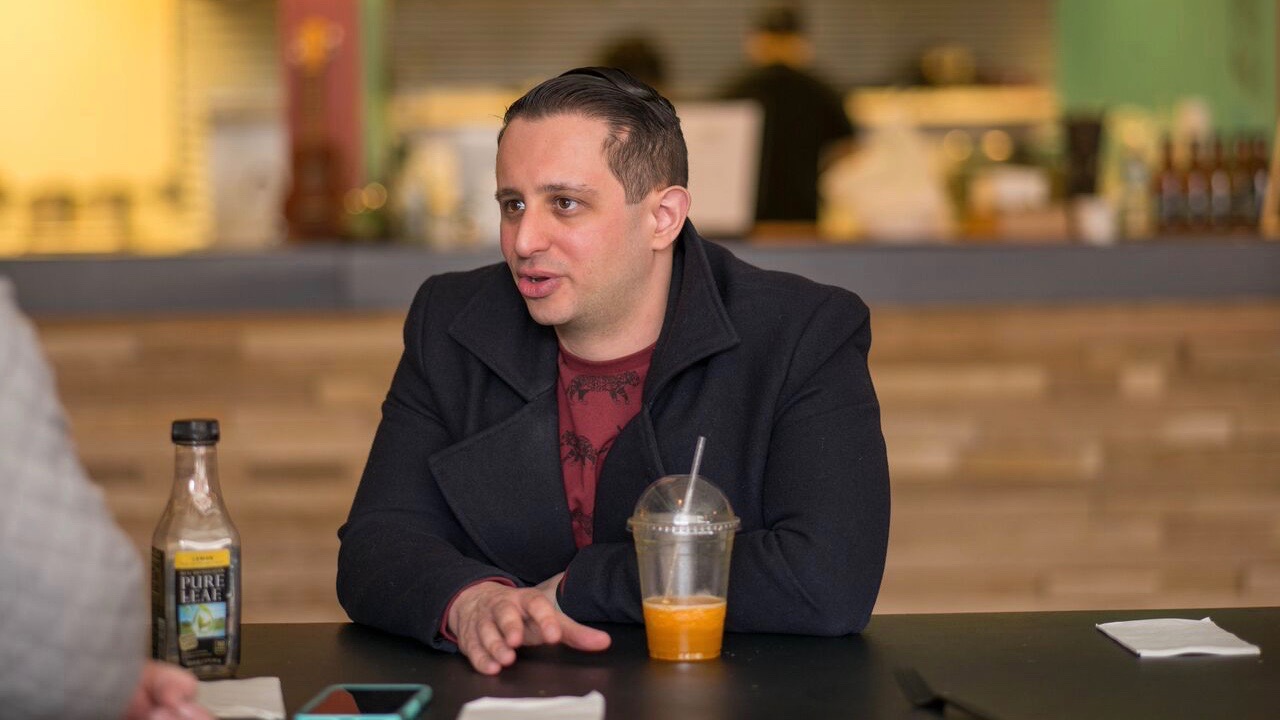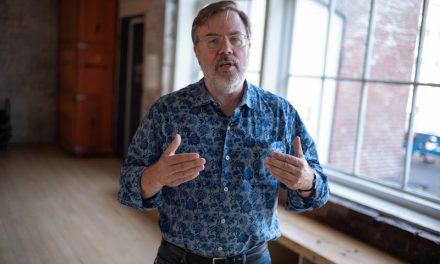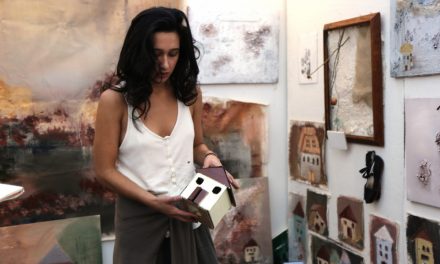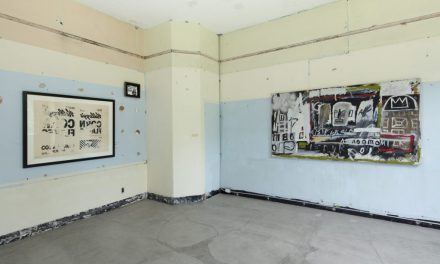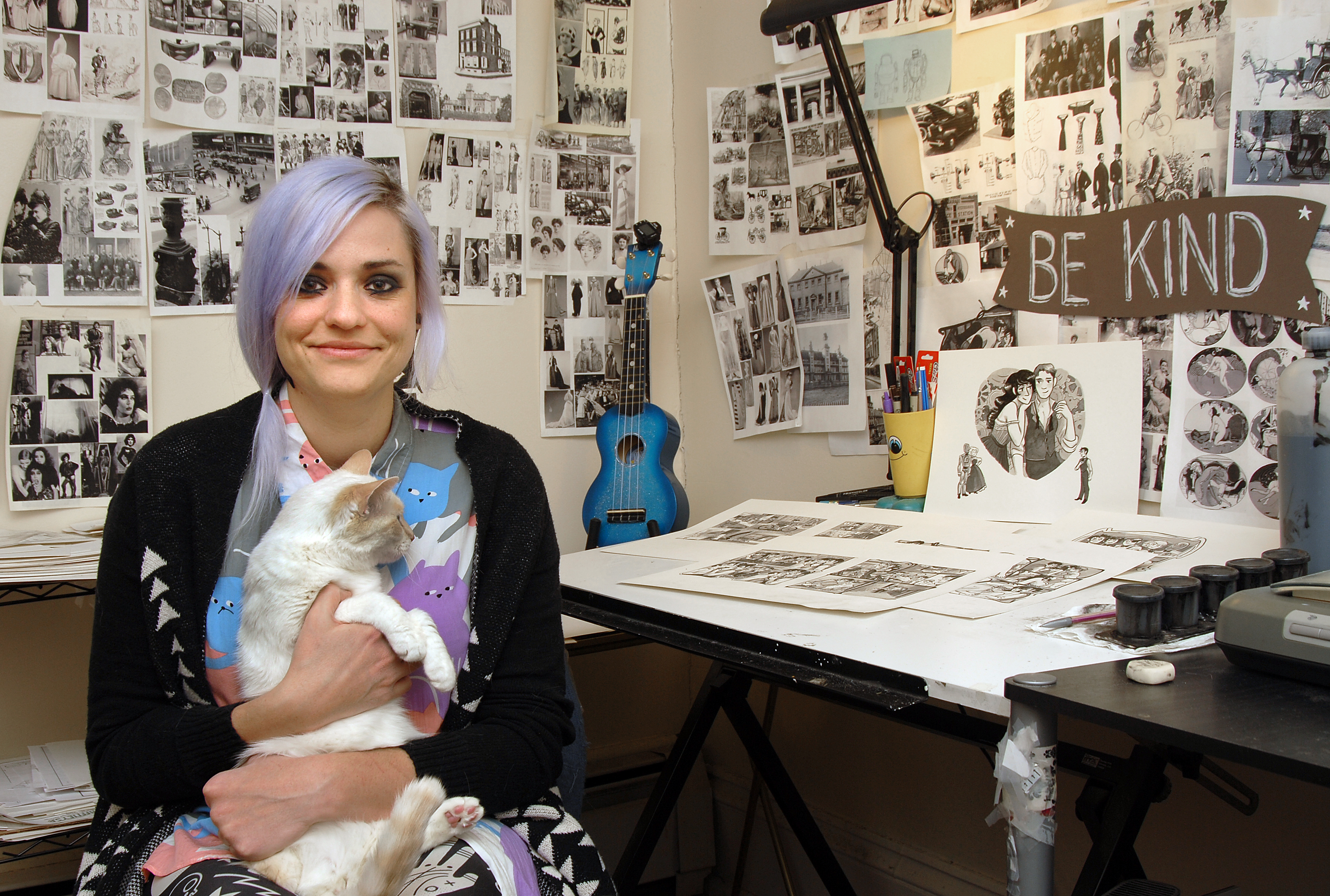This article first appeared in The Alt on April 5, 2017.
Growing up in Syracuse, Steve Orlando would pick through boxes at flea markets, looking for comics full of fantastic characters and stories that would transport him to other worlds. “What really hooked me was the sort of wildness, the anything goes, bright excitement I got out of these books I’d find in a quarter bin,” Orlando told The Alt during an interview at Troy Kitchen last week. “These books I bought by chance we’re not the super major properties; my first book wasn’t The Avengers; it was West Coast Avengers. And when I got into comics, Spider-Man was dead and Ben Reilly was Spider-Man. I got into Superman. He had this electric blue suit. What I like about comic books is that you can go in so many different directions and you don’t have the same constraints as film or TV. No one is ever saying you are over budget for this explosion, or the set. The limit is your imagination.”
Orlando is now a rising star at DC Comics, where he helms Supergirl and Justice League America.
It was in the year 2000 that Orlando started pursuing a career in comics. He arrived in the Capital Region with his partner, who attends a local university, about seven years ago. During those seven years Orlando has exploded as a prominent writer for DC Comics; he was the focus of international attention in 2015 for writing Midnighter, the first comic book published by the two big comic imprints to feature a gay man as the protagonist.
Midnighter tells the story of a hyper-violent, Batman-like vigilante who looks to serve up justice for regular people. His love interest is Apollo, a character created in the mold of Superman. Orlando’s first Midnighter run won major accolades from critics for combining fantastical and violent superhero themes with Midnighter’s recently ended relationship with Apollo and his need to adapt to life as a single gay man. The series was ultimately cancelled due to low sales. In 2016 DC launched a follow-up series called Midnighter and Apollo, in which the two men repair their relationship.
Orlando has been a leader in the push for more diversity in mainstream comics. DC and Marvel have both spent the last few years introducing characters that break the mold of the traditional white and straight superhero. In some cases the companies have introduced major-character replacements that are not just white and straight; Captain America lost his shield to The Falcon, who is a black man and calls himself Captain America. The white Captain America, meanwhile, was revealed to be a sleeper agent working for fascist group Hydra. Thor was deemed unworthy and his former love interest Jane Foster, who is also fighting cancer, was granted the power of Thor’s hammer and the outfit to go along with it. Iron Man recently died and has been replaced by a young black teenager named Ri Ri Williams. DC has had Catwoman come out as bi. Batwoman, also known as Cassandra Cain, is lesbian.

Reader reaction have been mixed. While critics have lauded many of the books; sales of some of the titles have not been stellar and there has been fierce pushback from conservative fans.
Meanwhile, DC has come under fire for its recent Rebirth series, which some see as catering to the “old-school” white, male fan.
David Gabriel, Marvel’s VP of Sales, was recently quoted in an interview saying that their readers don’t want diversity. “What we heard was that people didn’t want any more diversity. They didn’t want female characters out there. That’s what we heard, whether we believe that or not. I don’t know that that’s really true, but that’s what we saw in sales. We saw the sales of any character that was diverse, any character that was new, our female characters, anything that was not a core Marvel character, people were turning their nose up against. That was difficult for us, because we had a lot of fresh, new, exciting ideas that we were trying to get out, and nothing new really worked.”
Gabriel later clarified that female and non-white characters are still a major part of the Marvel Universe.
Orlando says he thinks it is critically important for comics to reach people of all walks of life. And that publishers do more to market and promote their titles to the correct audiences.
“I don’t think too much is being made of it (diversity). I think it’s a real demand. People deserve representation, they deserve it. The feeling seeing yourself in a comic gives you–it’s for everyone. The Peter Parker experience of ‘I’m a nerdy white, straight guy and I’ve got troubles, I’ve got Parker luck but maybe my life could be fantastic’–that’s not just for the Peter Parker archetype; it’s for everybody. I also think that not enough is being done about it. The solution is not just diverse characters, because the market is an ecosystem, and when you have books like Midnighter that are very lauded but cancelled due to low sales, you have to look at who you are reaching.”
Orlando said that it can’t just be up to creators to push diversity; they need to be supported. “The approach needs to be holistic. You need to put them out with marketing and research. You need new stores opening up with different type of leadership. You need representation in sales and marketing, because in some cases you don’t know how to sell what you have.”
One major problem for books like Midnighter is that they may not do well at comic stores in single-issue format, but once they are sold in collected editions on Amazon and Barnes and Noble their sales skyrocket.
“There’s no correct way to support a book,” said Orlando. “You should support a book in whatever way that is comfortable for you. However, the publishers make their decisions largely on monthly periodical sales. We’re at a crossroads right now where the industry has to change to engage that readership in a way that is more beneficial to everyone. There is a disconnect now.”
The push for more diversity in mainstream comic books has also drawn major backlash from fans and internet trolls who follow the vein of the Gamergate crowd, which is dedicated to attacking what they see as a conspiracy to force diversity down customers’ throats. Being an openly bi-sexual comic creator who advocates for more diversity in comics has made Orlando a target of internet trolls, some of whom rant about conspiracies to disparage whiteness or men. That backlash has grown with the election of Donald Trump.
“I think it’s impossible to not at least have some of your values get into a book, because as creators we’re making these choices. That said, I do genuinely think in many cases the readership, much like the country, is the most closed-off and divided that it has ever been. So I find that to be a challenge, because as vast majorities of people fight for even basic personhood and dignity it becomes hard to espouse . . . that both sides are just separate but equally valid points of view. Especially when one side is working to deny basic human dignity. It is really hard lately when I write what would 20 years ago have been an archetypal comic-book villain, but that evil behavior in many ways is now a ‘valid’ political point of view. It is so hard to make a statement about what is bad or good when in many cases people don’t agree on what is bad anymore.”
Orlando’s position as a major influencer on comic books is a long way from where he started: hashing out a script at a Denny’s in Camillus, a western suburb of Syracuse. He says he’s grown accustomed to working in public. “I get uncomfortable if there isn’t background noise after working for a year while listening to Grand Slams being ordered while I do my thing. I’ve been very happy moving here. All the craft stores, fine dining–it’s all an acknowledgement of us people who are doing something different. You don’t have to be a writer or working exactly in my field to understand what I’m doing.”
Perhaps the most useful aspect of the Capital Region to Orlando’s career is the wealth of industry veterans who do understand exactly what he’s doing. “I mean, you have people around here like Joe Sinnott, who is a living legend. He served in World War 2 and inked Jack Kirby. American comics wouldn’t exist as they do without him. And the fact that I can meet him and he’s still working is invaluable. There are people like Ron Marz and Paul Harding, who works in sculpture, and Dave Rodriguez, who does comics and video games. It’s so important to have these people around to share stories, to keep yourself sane while dealing with the kind of madness that comes with the push pull between utility and practicality of a deadline and making it the best it can. Its really good to have people to have ideas to bounce off of.”
Asked if he’s tempted by Hollywood and the allure of selling options to his own properties to major studios, Orlando says that “it’s time for a dose of reality.” He notes that he still works a day job, and that his role at DC is critical in winning him a readership that might deign to buy any of his independent work.
“You’re always building a base of people who trust the types of stories you’re going to tell, and to then have to ask them to take a leap of faith monetarily on something they are not familiar with–it isn’t a small thing to ask a huge amount of people to spend huge amounts money on something when they don’t really know what to expect. I would love to do more creator-owned books, because these are things where you have control. On one hand you work to put this artisanal brick in a massive mansion people have been building for 75 years and on the other you’re building a mansion yourself.”
Orlando says that his mentors have all told him they wished they had done creator-owned work earlier in their careers. “because these are the things that stay with you.”
The current political climate hasn’t stopped Orlando from standing up for what he believes in. Recent issues of Justice League America feature Saratoga, in part as a tribute to Darren Carrara, owner of Comic Depot, who passed away last November, and also to pay tribute to the region and the people Orlando’s come to know over the last seven years.
“What percentage of comics are set in New York City? You’d think all things happen in New York or fictional versions thereof. So with Midnighter I wanted to put him somewhere different. You wouldn’t believe how valuable it is to people, to see that someone recognizes them. Letting people know the world of comics can touch their world–that sort of feeling is something I remember from when I was younger.” Orlando recalls a writer using Syracuse in one of his books. “As a kid growing up there I had this sense of meta-wonder: ‘Oh my gosh, the DC universe has touched where I live. I want to do that for people. I want to show people they are part of it. That this fictional world is every bit as deep as the real world.”
Photos by Richard Lovrich

